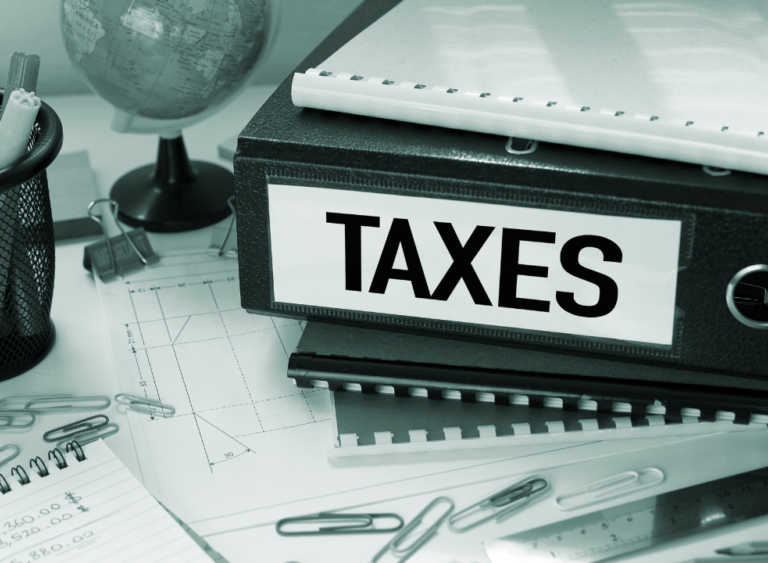Getting a Tax Refund from the IRS is Actually Bad
Most people are excited about getting a tax refund from the IRS.
You get a lump sum of cash to go shopping, take a vacation, catch up on some old bills.
but the reality is if you’re used to receiving a tax refund from the IRS you could be losing a lot more money than you’re gaining.
Without learning the truth behind how this system really works, we’re likely to retire broke.
What is a Tax Refund?
Let’s look at the actual definition for tax refund.
It’s any money that you received from the government because you paid more taxes than you should have in the previous year.
Imagine this, you run to the grocery store to pick up something.
By the time you check out the total is $5 and the smallest bill that you have is a $20.
Once you hand that over to the cashier, I’m sure that you would expect to get $15 back in change, right?
Of course, you expect to get your change back because you handed the cashier more money than what that item was worth.
Then once they hand you your change back, in its simplest form that is the equivalent to getting a tax refund from the IRS.
The Problem with Getting a Tax Refund from the IRS
Could you imagine once the cashier hands your $15 in change back that you’re like “OH MY GOD, thank you so much, I really appreciate it!!”
No one would do that…
The cashier would be looking at you crazy, it’s your money after all.
But because of the way that the tax system is set up, most of us have been programmed to feel this false sense of emotional high when the IRS refunds our money.
The Problem with Paycheck Withholdings
According to the IRS themselves, more than 2/3 of Americans get a tax refund every year.
It’s hard to believe that people knowingly let the government hold on to their hard-earned money all year until tax season comes.
This must be because we simply don’t know that we’re overpaying, or we don’t care enough to change it.
Either way, the biggest problem is that most of us don’t notice we overpay on taxes.
This is because taxes are withheld automatically from our paycheck before we get it.
But this isn’t by accident…
The Truth About Tax Deductions & Refunds
Deducting taxes from employees checks automatically has been in place nearly as long as taxes have existed.
The point of it is to make paying taxes painless and almost invisible.
But on the other hand, tax refunds are extremely visible because of commercials and ads that make refunds seem like a small miracle.
This is part of the reason why we get excited to get our own money back. It almost makes it feel like we won something.
Going back to the grocery store example, let’s use that same scenario.
You go to check out and your total is $5.
So, you hand the cashier a $20 and instead of them giving your change back they hold on to it.
They tell you to come back next year, fill out a few forms, then they’ll process everything and give your $15 back.
There’s absolutely no way that we would let that happen, so why are we okay with getting a tax refund from the IRS?
How Much Do People Overpay in Taxes?
Back in 2023, the IRS refunded $172 billion to approximately 59 million Americans that overpaid on their taxes.
The average refund amount per person or household broke down to about $3,000.
Doing the math, that’s $250 a month that’s coming out of people’s paychecks that probably don’t realize it.
How Do People Spend Their Tax Refund?
Getting your tax refund is one thing, but what you do with your tax refund is another story.
Companies everywhere understand that millions of people overpay on their taxes and are due a refund and they take advantage of it.
If you pay attention, around tax season there’s a lot of retailers that start promoting sales and special discounts.
Especially on big ticket items like cars, furniture, and appliances, that are meant to entice people to spend their tax refund on things that they never intended to.
The psychology behind all of this is that false emotional high that most people get, and it makes the tax refund feel like extra cash.
As a result, the tax refund is spent in a matter of weeks.
How to Stop Getting a Tax Refund From the IRS
To find out if you are overpaying on taxes out of your paycheck, I recommend that you get with a tax professional.
If it turns out that you are overpaying in taxes, you’ll likely need to get with your human resource department at your company to update your tax forms.
The goal is for the taxes withheld from your paycheck to be as close to $0 as possible by the end of the year.
This means that you don’t owe the IRS for not paying enough taxes, but that you also don’t receive a refund from paying too much.
As a result, you will receive your entire paycheck throughout the year, and here’s the reason you should do this ASAP.
The Best Alternative to Tax Refunds
Let’s look at what would happen if we invested the average $3,000 refund amount in the stock market instead of sending it to the IRS.
You would have an extra $250 a month. Now the question is, where to invest.
S&P 500 Index Fund
The S&P 500 is a fund grouping the top 500 leading companies in the United States that’s been around since the 1920s.
Historically the average amount money has grown while invested in this fund over the past 30 years has been an average of 10% year-over-year.
If invested $250 every month from the age of 25 to 65, and received a 10% annual return, you would end up with $1.5 million by the time you reach the age of retirement.
To break those numbers down further the amount that you would have invested would equal $120,000.
But the growth from the stock market and compound interest from that money being invested would be $1.4 million.
Now compared to letting the government hold our money year after year and not giving us anything for it, this sounds like a lot better option.

Robinhood Investing App!
Robinhood let’s you invest in leading stocks like Amazon, Google, and Netflix with no fees!
Sign up today and receive your FREE stock!
The Danger of Investing too Soon
Even though investing is a much better option than overpaying on taxes, I do want to caution you.
If you have any kind of consumer debt, which is debt other than your mortgage, it’s crucial you clean that up before you start investing.
Because if the money that you’re investing in the stock market is growing 10%, but you’re paying 20% interest on a credit card, then investing would be a waste of time.
So, if you happen to be in debt and you’re looking to get out the fastest way possible I’ve linked a free eBook below.
It shows a proven method of 7 steps that have gotten millions of people out of debt!

Grab Your FREE eBook
7 proven steps to get out of debt and build wealth!
Conclusion
It’s essential to reevaluate our perspective on tax refunds and recognize them for what they truly are.
By understanding the opportunity cost of receiving a tax refund, we can take proactive steps to optimize our financial situation.
Seeking professional advice can further enhance our financial planning efforts and ensure we make informed decisions aligned with our long-term goals.
For more information about managing your personal finances, feel free to visit our resource center!
Frequently Asked Questions (FAQ) on Tax Refunds
Q1: Why is receiving a tax refund considered less advantageous than adjusting tax withholdings?
A1: A tax refund is essentially the return of money you overpaid in taxes throughout the year.
Q2: How can I determine if I am overpaying on taxes?
A2: Review your W-4 form and assess your tax withholdings.
If you consistently receive a tax refund, you may be overpaying.
Consult with a tax professional to ensure your withholdings align with your financial goals.
Q3: What is the opportunity cost of receiving a tax refund?
A3: The opportunity cost lies in the fact that the money overpaid in taxes could have been invested or used to pay off high-interest debts, save, or invest.
Q4: How can I optimize my financial situation?
A4: Adjust your tax withholdings to have more money in each paycheck.
Q5: Can adjusting tax withholdings lead to owing taxes at the end of the year?
A5: Adjusting withholdings aims to minimize overpayment without resulting in owing taxes.
A tax professional can help strike a balance, ensuring you neither overpay nor underpay throughout the year.
Q6: What alternatives exist for using the money saved from adjusting tax withholdings?
A6: Consider building an emergency fund, investing in low-cost index funds, or contributing to retirement accounts.
Q7: How can I educate myself further on managing finances and investments?
A7: Stay informed through reputable financial resources, books, and online courses.







